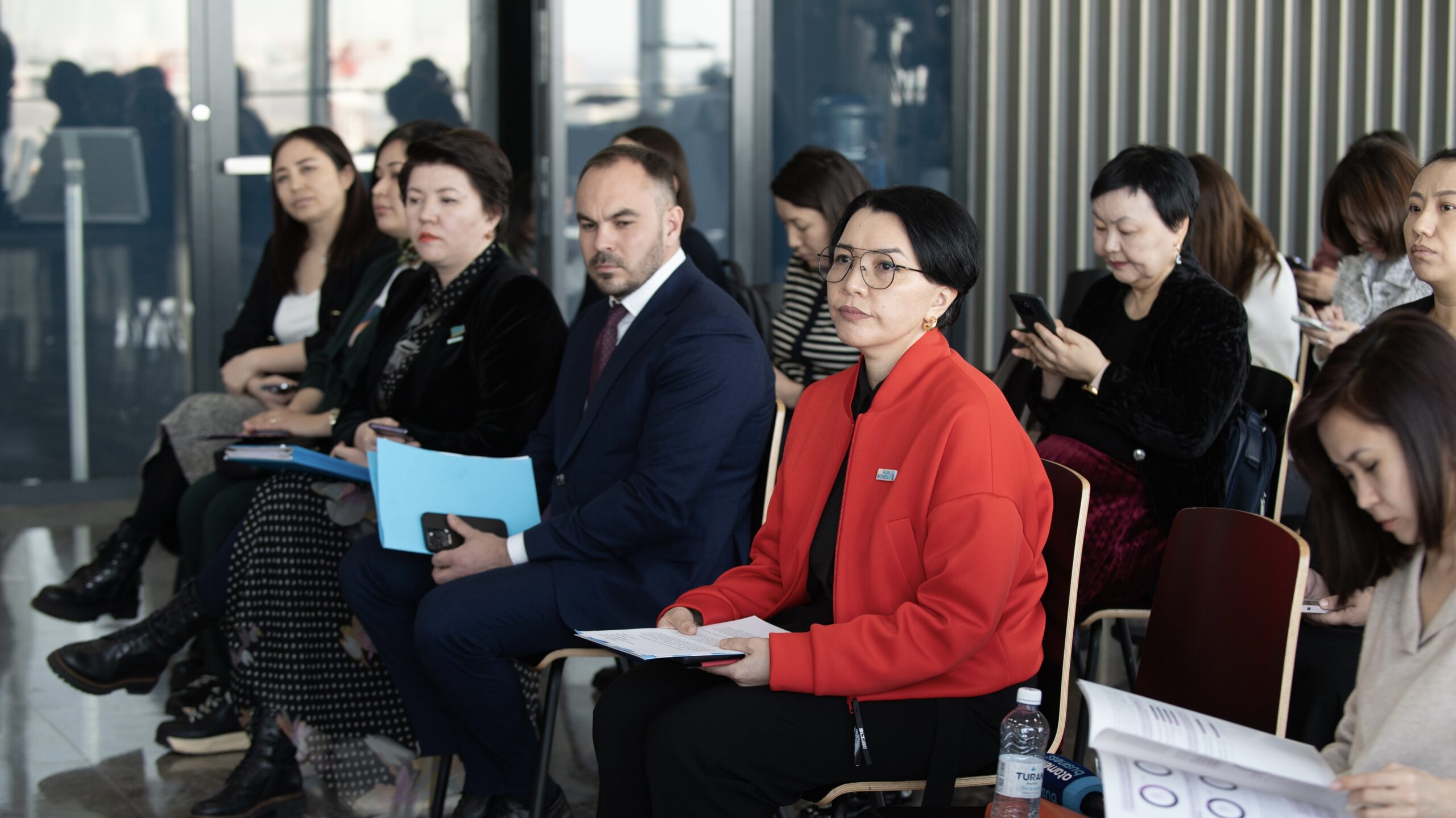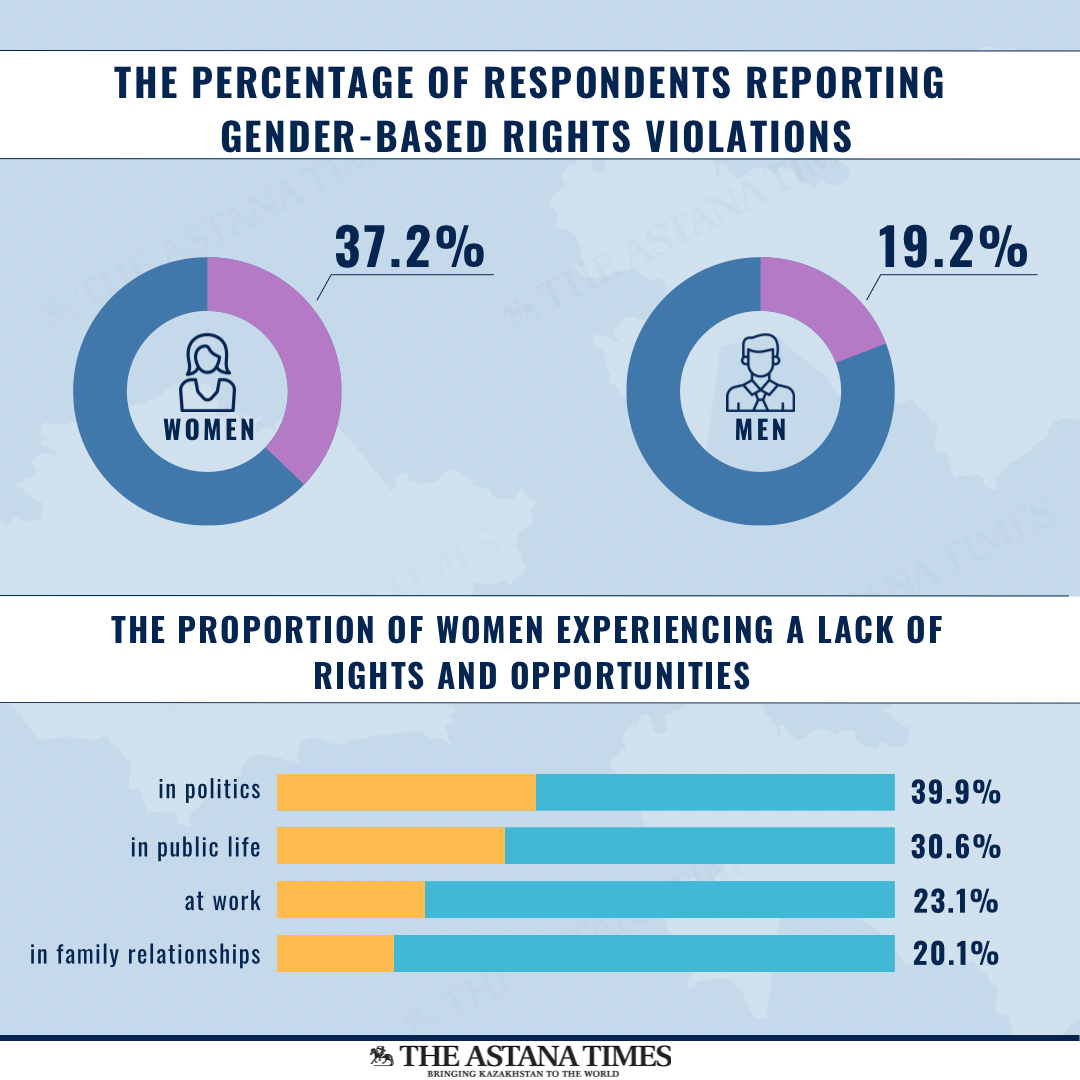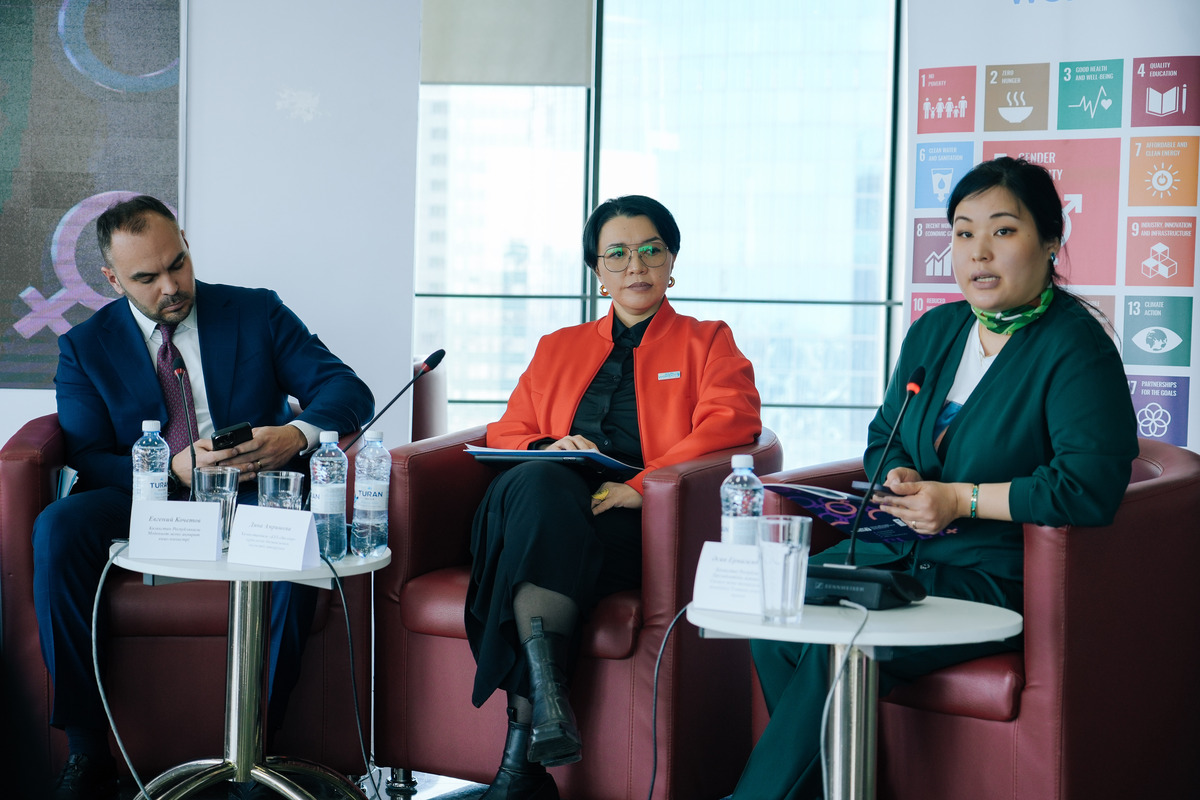ASTANA – The United Nations Development Programme (UNDP) in Kazakhstan and the UN Women Kazakhstan, presented the results of sociological research on public perception of gender equality and female empowerment in the country on March 5. The report delves into the examination of gender stereotypes, sex-based discrimination in education, employment, and family relationships.

Photo credit: the Kazmedia Center.
The data includes a survey of 3,800 respondents from all 17 regions of Kazakhstan and three cities of national significance – Astana, Almaty, and Shymkent.
Public Opinion Research Institute Director Botagoz Rakysheva said “the representative sample reflects opinions of people of different ages, social positions, nationalities, and professions.”

UNDP Deputy Resident Representative in Kazakhstan Sukhrob Khojimatov, Public Opinion Research Institute Director Botagoz Rakysheva, and Mazhilis deputy Zhuldyz Suleimenova. Photo credit: the UNDP press service.
It turned out that 76.5% of citizens, both women and men, consider the gender situation in the country satisfactory. According to the research, Kazakh women feel they have the most rights and opportunities first within the family, second at work, then in public life, and, lastly, in politics. Overall, 26.6% of interviewed women believe they have insufficient or inadequate rights and opportunities.
The complex of entrenched stereotypes about socially conditioned gender roles, which suggest that the primary function of women is childbirth and child-rearing, strengthens the existing gender inequality.
Nearly 70% of men and 54% of women believe that the main duty of a woman is to create a comfortable family environment. Female (54%) and male (77%) respondents believe that the head of the family should be a man.

Photo credit: The Astana Times.
Vice Minister of Information and Social Development Yevgeniy Kochetov said the ministry is now “introducing the practice of premarital counseling, where the goal is not only to talk about what marriage is, but to eliminate gender imbalance.”
“The initiative is voluntary. We want to see the results to take further steps to scale the project. Apart from that, in 2024-2025, it is planned to establish a special master’s program, which will focus on gender studies,” he said.

According to UNDP Deputy Resident Representative in Kazakhstan Sukhrob Khojimatov, the most serious threat in human rights protection is gender-based violence in all its forms.
“Recent estimates show that nearly 90% of the world’s population are prejudiced against women. One in four people finds an excuse for domestic violence. In total, only in 14 countries, women have equal legal rights with men. For women, the position of heads of state or government worldwide has hardly changed since 1995 and amounts to 10%. On average, women continue to earn 48% less than men for the same job,” said Khojimatov.
The research demonstrates more positive tendencies regarding women’s activities in the labor market in Kazakhstan.
The majority of men (75%) agree that women should work and have their own income. A slightly smaller proportion of surveyed men (69%) acknowledge that their wife or partner may earn more than them. Only 50% of male respondents believe that a woman can fully independently manage her earnings.
Meanwhile, the proportion of respondents who said that a woman should hand over her earnings to her husband or parents is nearly 3% in Astana, 5% in Almaty, and 19% in Shymkent.
Gender stereotypes often lead men to be unwilling to perceive women as active participants in public or political life. For instance, more than half of interviewed men (52%) said that a woman can’t lead the country.
The UN Women Kazakhstan Head of Office Dina Amrisheva highlighted the importance of having clear specific data for practical use in the future. In terms of the participation of women in the country’s decision-making, she said that “women should understand how to build their political program and how to interact with the electorate.”
“This indicates the need for additional work. The UN Women supports women in all regions. For example, with the support of the Ministry of Culture and Information, we conducted training on political participation. It is also important in the fight against gender stereotypes and social norms,” said Amrisheva.
Apart from that, gender discrimination restricts the opportunities for women and girls both in education and employment. According to the survey, 54% of respondents expressed confidence that disciplines in science, technology, engineering, and mathematics (STEM) are not suitable for girls.
Recommendations of the research findings are intended to stimulate discussions and the creation of policies aimed at overcoming existing barriers in gender equality.

